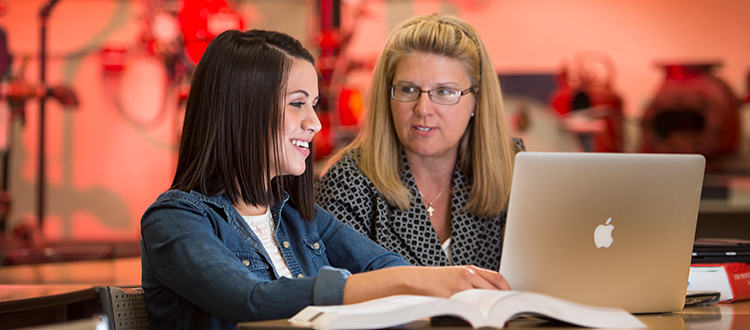
Academic advising is a partnership between students and faculty/staff. These best practices will help you get the most out of the experience.
Be available and prepared
- Use an electronic appointment scheduling system for students to make appointments
- Dedicate advising hours during peak advising times
- Offer a variety of advising appointment times to accommodate diverse schedules
- Send reminders for students to schedule and attend advising meetings (*recommendation: use the IUP Advise bulk emailing feature)
- Ask students to complete an academic plan and bring it with them to meetings (e.g. classes they need/want to take, certification tests they need to take, program application dates, etc.)
- Review student file to familiarize yourself with their needs before the meeting
- Consider the unique needs of online students regarding advising
- Check out the D2L page to provide resources for student success: Student Success: Common Tools, Technologies, and Processes
Communicate and maintain accurate records
- Set a minimum one quality appointment per semester to discuss courses selections, progress towards graduation, career/graduate school goals
- Increase contact with students with high risk scores in IUP Advise, low grade performance, excessive absences, etc.
- Regularly update notes in students’ IUP Advise file after meetings or send a follow-up email through Advise to document conversation
- Review advisor alerts in IUP Advise
Know university policies, procedures, and how to find answers
- Empower students to make informed decisions and plan for their future
- Provide accurate and timely information about degree and career-related requirements
- Advise from an integrated perspective (general education major, minor, certificates, experiential learning/internships, etc. )
- Understand campus policies and procedures (e.g. FERPA, Title IX, ADA, Financial Aid, Student Billing, etc.) and help students find the answers to their questions when you do not know the answers
- Make appropriate campus referrals when necessary
Advise the whole student
- Get to know your advisee
- Consider how a student’s race, ethnicity, socioeconomic status, gender identity, sexual orientation, immigration status, ability, or other factors may affect their experiences and advising needs
- Raise alerts regarding the student’s needs if necessary (via IUP Advise)
- Follow up with struggling students to see if they have received assistance or if they need additional help
Recommendations based on DePauw University Best Practices.